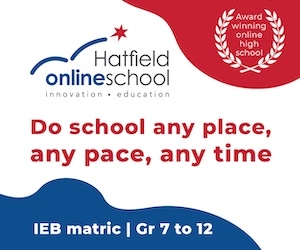
Art & Design School at Wingu Academy
Unlock Your Creative Potential with International GCSE Art & Design! Explore, Create, Inspire. WELCOME TO THE iGCSE ART & DESIGN PROGRAM! The Journey Begins Here. Are you ready to embark on a journey of artistic exploration and expression? Look no further! Our comprehensive online Art and Design course, meticulously crafted for the Pearson iGCSE examination board, is your gateway to unlocking your full creative potential. Our 18-month course is designed specifically for students who are passionate about exploring their creativity and developing their artistic skills. Why Choose Our Program? Teacher-Guided Sessions: Learn from experienced and qualified teachers who are passionate about art and dedicated to helping you succeed. Receive personalised guidance and in-depth feedback in the virtual classroom, to nurture your artistic skills and to enhance your creative vision. Project-Based Curriculum: Our course is specifically designed to align with the Pearson iGCSE Art and Design syllabus, ensuring that you receive targeted and relevant instruction every step of the way. Engage in a variety of projects that challenge you to think creatively and innovate. Your portfolio will be a testament to your artistic journey. Experiential Learning: Exams are based on your practical work, showcasing your research, experimentation,and mastery of various themes and concepts. Gain the knowledge and confidence you need to excel in the Pearson iGCSE Art and Design examination. Our course covers all aspects of the syllabus, from developing critical thinking skills to mastering practical techniques, ensuring that you’re fully prepared to showcase your talents on exam day. Diverse Art Styles and Mediums: Whether you’re into painting, drawing, sculpture, or mixed media,our program supports all forms of artistic expression. Your Creative Diary: The Visual Sketchbook Throughout your course, you’ll maintain a visual diary or sketchbook. This personal space is where your ideas will take shape, evolve, and flourish. Your Canvas Awaits. Create Your Masterpiece with Us! “WHAT WILL YOU MASTER IN THIS COURSE?” Develop ideas through investigations, demonstrating a critical understanding of sources Refine work by exploring ideas, selecting and experimenting with media, materials, techniques and processes Record ideas, observations, and insights relevant ot intentions as work progresses Present a personal and meaningful response that realises intentions and demonstrates an understanding of visual language THE PROGRAM IS DESIGNED FOR PEARSON EXAMINATION REQUIREMENTS Meet our iGCSE art mascot, Camo the chameleon. He will be accompanying you on your art journey. Previous experience in art: Students do need prior knowledge in art preferably at Secondary level to be able to produce art at iGCSE level. Students may need to submit evidence of their prior art education or experience as part of the application process. Join Our Creative Community Today Don’t let your artistic aspirations remain unfulfilled. Enrol in our Pearson iGCSE Art and Design course today and take the first step towards realising your creative dreams. Join our vibrant community of aspiring artists and designers, and embark on a transformative journey of self-discovery and expression. Enrol Now and Shape Your Artistic Future! For more information, book a consultation or contact our admissions office: 087 147 1668 www.wingu-academy.com









































